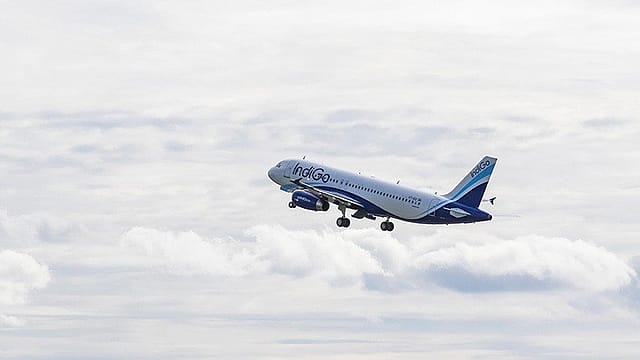IndiGo’s billionaire troubles
ADVERTISEMENT

Even before the blackish-grey Monsoon skies can arrive, turbulence in the Indian aviation sector has intensified. After Jet Airways ceased to operate in April due to financial stress, there’s trouble brewing at India’s biggest and most profitable airline IndiGo. But it’s trouble of a different kind — there are reports of “serious differences” between Rakesh Gangwal and Rahul Bhatia, the billionaire co-founders of IndiGo.
Their differences, according to a May 16 report in The Economic Times, are “over strategies and ambitions for the airline.” The report further stated that the co-founders have enlisted the help of law firms Khaitan & Co and J Sagar Associates to resolve their differences.
“If their differences are entirely operational, with each wanting the airline to take a different growth path, then it’s an unfortunate turn of events,” says Jitender Bhargava, former executive director of Air India. “Considering that they built the right business model, ran a profitable airline, and have placed a large fleet order.”
InterGlobe Aviation, the listed parent entity of IndiGo, has a market capitalisation of about $8 billion; Gangwal holds a 36.68% stake in the company and Bhatia 38.26%.
While Gangwal and Bhatia are media-shy, almost reclusive, they have been the driving force of the airline. Many in the industry credit IndiGo’s success to the behind-the-scenes work that the two have silently carried out — from buying and leasing aircraft to dealing with vendors.
“Aircraft purchase and leases has to be done at the promoter level. The promoter can best share the company’s vision and strategy, which helps in negotiating [beneficial] long-term contracts,” an airline industry veteran had earlier noted as being the key driver to IndiGo’s success.
While an e-mail query to IndiGo and Bhatia did not elicit a response, Gangwal, in an e-mail reply to Fortune India, said, “As you may or may not be aware, as a practice, I try my best to avoid interacting on press reports. Please forgive me for trying to be resolute on this issue.” He further added, “If there are issues that I feel the need to discuss with the press, I will be more than happy to have a discussion with you.”
IndiGo, with a 43% market share, lords over the Indian skies with over 1,300 daily flights that connect to 52 domestic destinations and 17 international destinations. The low-cost airline’s growth, since it commenced operations in 2006, has been unparalleled. And more so during the last two years, when it added over 80 aircraft to its fleet.
Even as high fuel costs and a volatile rupee have kept Indian airlines in the red, IndiGo was able to report a meagre profit of ₹191 crore in the third-quarter of fiscal 2019 as against a profit of ₹762 crore reported in the same period a year ago. The airline, which has 43% domestic market share, will announce its fourth-quarter and fiscal 2019 financial results on May 27.
Trouble amongst the top-most leadership of India’s most successful airline is not only worrying, but could also have an impact on the aviation sector.
According to a recent report by the International Air Transport Association, domestic passenger traffic rose just 3.1% in March, down from February’s growth of 8.3% and well-off the country’s five-year average growth pace of 20%. “The slowdown largely reflects the reduction in flight operations of Jet Airways—which stopped flying in April—as well as disruptions at Mumbai airport owing to construction,” read the report.
In this backdrop and considering IndiGo’s market domination, “any slackening in its growth will have an impact on the aviation industry,” says Bhargava. “It’s common knowledge that when you have differences of opinion between promoters, who own almost three-fourths of a company, it will have an impact on the company’s growth,” he adds.
IndiGo’s CEO Ronojoy Dutta in a letter to employees on Thursday, the day after news of the rift between Gangwal and Bhatia broke, reaffirmed the airline’s commitment to growth. “You are all aware of the press reports regarding [the] alleged disagreements between our two promoters, Rahul Bhatia and Rakesh Gangwal. Assure you that the growth strategy of the airline remains unchanged and firmly in place and the management is fully charged by the Board to implement it,” he wrote. Dutta, who took charge as CEO in January, was a veteran United Airlines executive and is said to have close ties with Gangwal, who also worked at United Airlines in the early ‘90s.
“Unfortunately, we don’t have a towering personality in the [Indian] aviation industry who could be looked upon to mediate between the two [Gangwal and Bhatia],” says Bhargava.